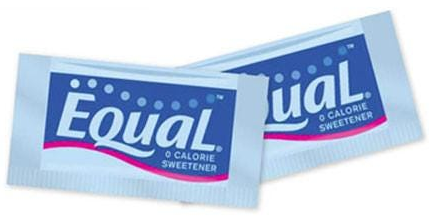Artificial sweeteners are regulated by the U.S. Food and Drug Administration (FDA). These do not add sugar to the diet or into the bloodstream.
A summary of the more common sweeteners
Saccharin (Sweet ‘N Low®)
During the 1970’s, some studies in laboratory rats found higher rates of bladder cancers in rats fed large amounts of saccharin. However, it is believed that the mechanism by which these bladder tumors developed in the rats is not relevant to human tumor development. Human cancer research has not clearly linked saccharin to bladder cancer risk.
Aspartame (Equal® and NutraSweet®)
Aspartame was approved in 1981. At that time, research in laboratory animals showed no link between its use and the development of cancer. Since then, several questions have surfaced related to aspartame use and increased incidence of brain tumors in humans and lymphomas and leukemias in rats. So far, studies have not been able to confirm this link in humans.
Sucralose (Splenda®)
Sucralose is one of the newest artificial sweeteners on the market. It has undergone only short-term study to evaluate cancer related risk. Though it has been given the “all clear” by the FDA, many scientists believe that long term studies should be performed before promoting this as a safe alternative to sugar.
In summary, some links between artificial sweeteners and cancer in laboratory animals do exist. Since it is not clear how artificial sweeteners affect human health, avoid using them until more information is known.
Natural Alternatives to Sugar.
· Honey
· Molasses
· Maple syrup
· Agave nectar
These sweeteners are recommended over granulated sugar and artificial sweeteners.
Molasses, honey, and maple syrup are high in antioxidants. Antioxidants are substances found in foods that protect your body from heart disease, cancer, and other diseases.
Agave nectar has the lowest glycemic index of sweeteners. Remember, though, that each of these sweeteners provides similar calories to granulated sugar (approximately 60 calories per tablespoon).
You should still use them in moderation. Stevia is a naturally sweet herbal extract that has become popular recently. It contains no calories. Our understanding of Stevia’s possible risks related to human diseases is incomplete. Use caution with this product until more is known.








